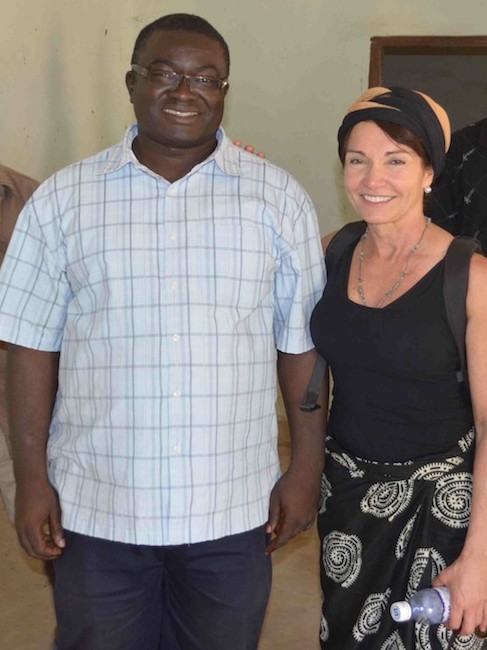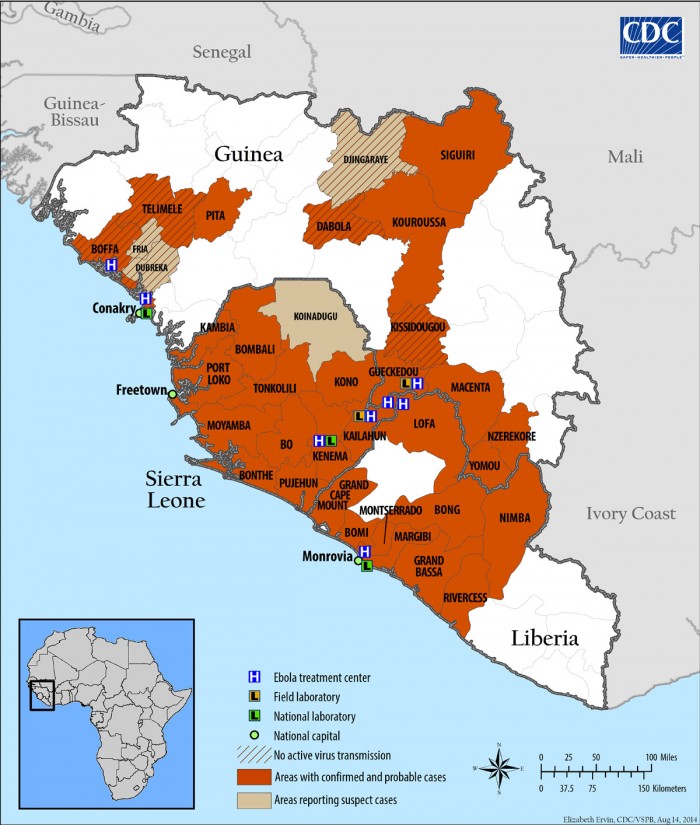 The Village Link's Co-Director, Evelyn Lewis is a very busy man. When he's not helping TVL, he is working for his other company, SBTS Group - an ICT consulting firm and TrainingSol - a training company and jobs portal. Most recently Evelyn has poured his time, money and resources into helping Sierra Leone fight the Ebola crisis in a more organized way despite the fact that his own business is suffering due to this crisis. He decided he needed to help because he could. Evelyn is just one of many Sierra Leonian entrepreneurs that have seen a major loss in revenue due to Ebola.
The Village Link's Co-Director, Evelyn Lewis is a very busy man. When he's not helping TVL, he is working for his other company, SBTS Group - an ICT consulting firm and TrainingSol - a training company and jobs portal. Most recently Evelyn has poured his time, money and resources into helping Sierra Leone fight the Ebola crisis in a more organized way despite the fact that his own business is suffering due to this crisis. He decided he needed to help because he could. Evelyn is just one of many Sierra Leonian entrepreneurs that have seen a major loss in revenue due to Ebola.
After he visited the EOC (Emergency Operations Center), the central coordination center all the agencies giving support, he immediately saw they were in need of help. What he saw was quite alarming given the magnitude of the crisis. There was only one lady, tasked with the job of answering phones and responsible for reporting all ebola cases in the country. This is when he knew that if Sierra Leone was going to battle this virus and have a shot at defeating it, they would have to more organized and better prepared to handle the workload.
Immediately, Evelyn got all of his staff started on writing a new software to coordinate the Ebola effort for the call center and to make sure it was tailored specific to this effort. The new software is appropriately named the Ebola Operating System (EOS).
As Evelyn describes, "the need for the software was noted as the significant increase in calls contained sensitive operational and time-bound information required by the numerous ebola response teams and to primarily make sure all cases and calls were logged at the initial point of contact coming through the main telephone number 117 and centralize data gathering and sharing." The EOC call center was able to expand it's call center resources from only 16 lines to 62 lines with this new software.
Previously, call agents would handwrite the initial recordings at the beginning of the operations, then enter this data into separate excel spreadsheets causing a backlog of manual entry and delays in reaching out to the respective teams and susceptible to mistakes. This new software provides unified data in a centralized system based on the feedback of field teams.
In addition to building out a customized software, free of charge for all NGO's and the EOC to use, Evelyn and his team were able to provide training for the Ebola efforts and actually hired and trained all 200 employees for the call center, provided credential services for the quarantined areas and vehicle passes etc., to cover about 50,000 persons. Evelyn and his team also donated short term support completely free to the people of Sierra Leone to help fight this crisis.
It's still an uphill battle they are fight in Sierra Leone but at least they are more organized and able to respond in a more timely manner, thanks to Evelyn and his teams timely response and generous donation. We're so proud of the work he is providing his country!


